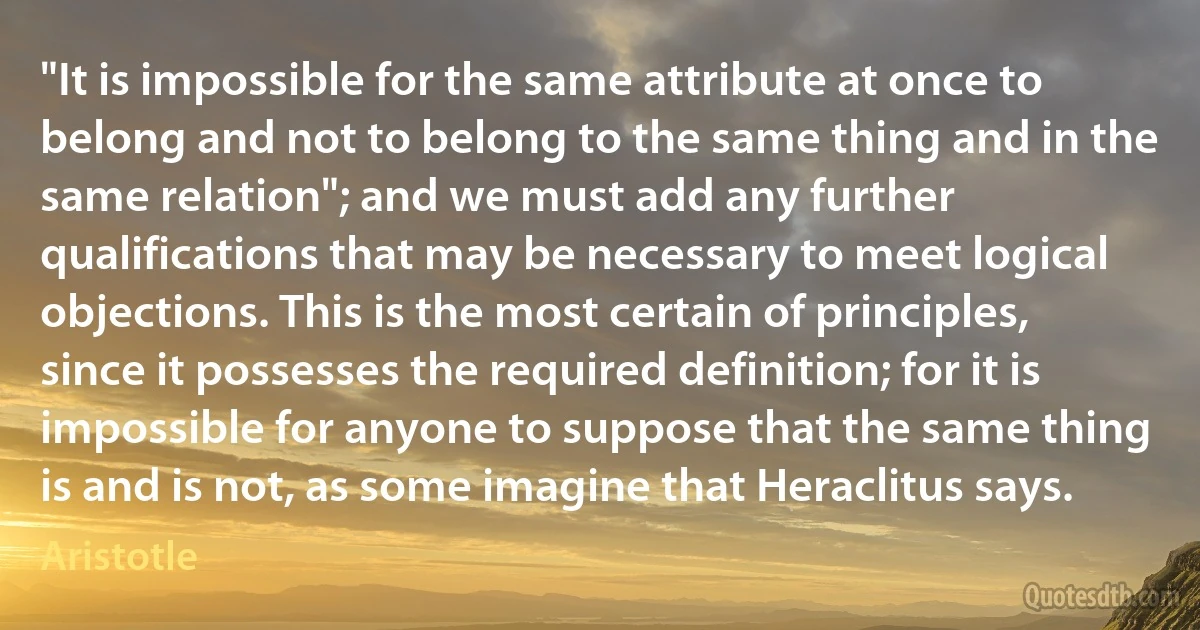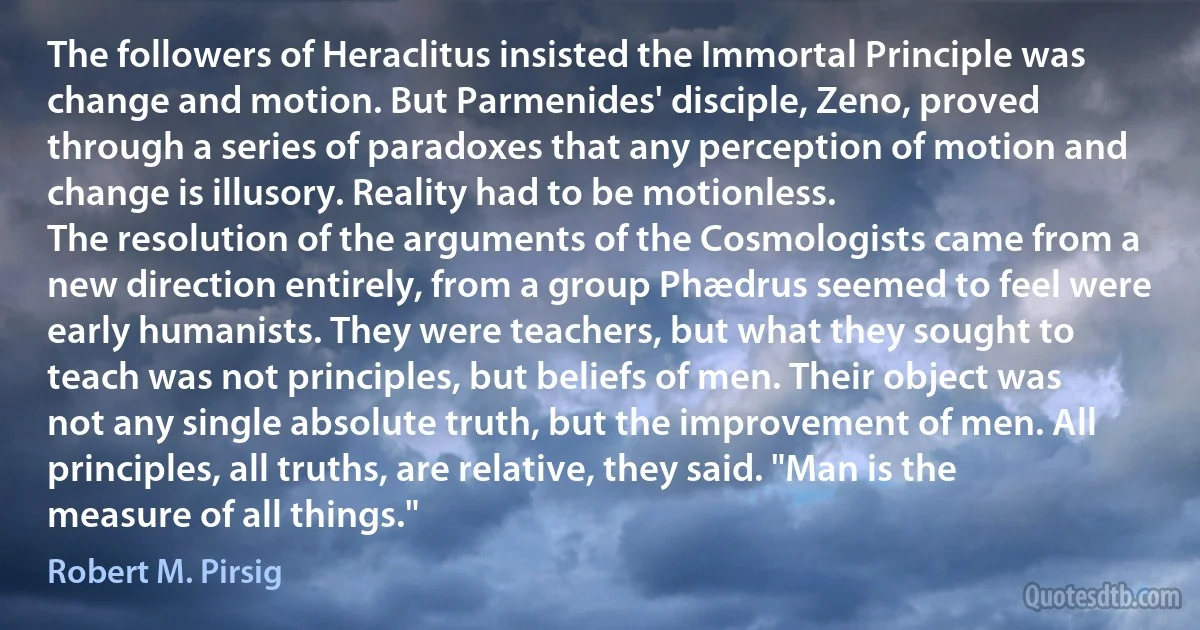Heraclitus Quotes
Thales thought that water was the primordial substance of all things. Heraclitus of Ephesus... thought that it was fire. Democritus and his follower Epicurus thought that it was the atoms, termed by our writers "bodies that cannot be cut up" or, by some "indivisibles." The school of the Pythagoreans added air and the earthy to the water and fire. Hence, although Democritus did not in a strict sense name them, but spoke only of indivisible bodies, yet he seems to have meant these same elements, because when taken by themselves they cannot be harmed, nor are they susceptible of dissolution, nor can they be cut up into parts, but throughout time eternal they forever retain an infinite solidity.

Vitruvius
Not only the Greeks in general - Aristotle no less than Plato - but the great medieval thinkers as well, all held that there was an element of purely receptive "looking," not only in self-perception but also in intellectual knowing or, as Heraclitus said, "Listening-in to the being of things."
The medievals distinguished between the intellect as ratio and the intellect as intellectus. Ratio is the power of discursive thought, of searching and re-searching, abstracting, refining, and concluding [cf. Latin dis-currere, "to run to and fro"], whereas intellectus refers to the ability of "simply looking" (simplex intuitus), to which the truth presents itself as a landscape presents itself to the eye.

Josef Pieper
Coleridge observes that all men are born Aristotelians or Platonists. The latter feel that classes, orders, and genres are realities; the former, that they are generalizations. For the latter, language is nothing but an approximative set of symbols; for the former, it is the map of the universe. The Platonist knows that the universe is somehow a cosmos, an order; that order, for the Aristotelian, can be an error or a fiction of our partial knowledge. Across the latitudes and the epochs, the two immortal antagonists change their name and language: one is Parmenides, Plato, Spinoza, Kant, Francis Bradley; the other, Heraclitus, Aristotle, Locke, Hume, William James.

Jorge Luis Borges
If A is A, a philosopher should equal a philosopher. But that's not the way the cosmos works. Similar things set themselves apart from one another. ...What's more, opposites are joined at the hip. Einstein says that most creative acts come from opposition. They come from pitting yourself against someone with another point of view. They come from the law of differentiation. And that was true of Aristotle and his law of identity, his law of noncontradiction, his construction for the base for A is A. Aristotle came up with his idea... to fling a finger in the face of another philosopher [Heraclitus]...

Howard Bloom
The Immortal Principle was first called water by Thales. Anaximenes called it air. The Pythagoreans called it number and were thus the first to see the Immortal Principle as something nonmaterial. Heraclitus called the Immortal Principle fire and introduced change as part of the Principle.

Robert M. Pirsig
That which Heraclitus avoided, however, is still the same at that which we shun today: the noise and democratic chatter of the Ephesians, their politics, their latest news of the "Empire,” ... their market business of "today”-for we philosophers need to be spared one thing above all: everything to do with "today.” We reverence what is still, cold, noble, distant, past, and in general everything in the face of which the soul does not have to defend itself and wrap itself up.

Friedrich Nietzsche



